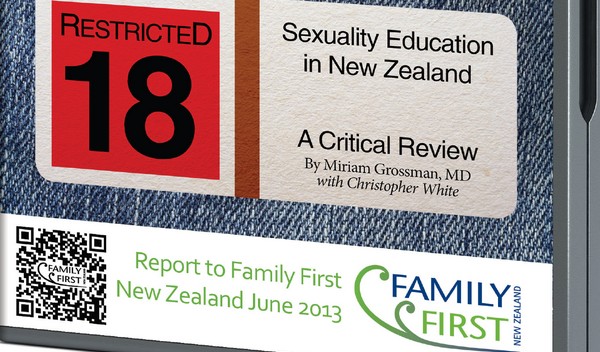Teenage pregnancies decline as funding for sex education is cut
 The Times 30 May 2017
The Times 30 May 2017
Family First Comment: “(The) evidence suggests that when the government involves itself in teenagers’ sex lives it often winds up achieving the opposite of what was intended.”
Yep. That’s what our “R18” report said also https://www.familyfirst.org.nz/research/r18-sex-ed/
Teenage pregnancy rates have been reduced because of government cuts to spending on sex education and birth control for young women, according to a study that challenges conventional wisdom says the Times. The state’s efforts to teach adolescents about sex and make access to contraceptives easier may have encouraged risky behaviour rather than curbed it, the research suggests.
In 1999, faced with some of the highest teenage pregnancy rates in Europe, ministers paid councils tens of millions of pounds a year to tackle the problem. Some local authorities made the morning-after pill freely available through pharmacies, while most hired teenage pregnancy “co-ordinators”, opened sexual health clinics in schools, and funded sex and relationship education (SRE) classes. The number of pregnancies, however, has fallen at a significantly faster rate since the grants were scrapped in 2010, in spite of critics’ dire prophecies to the contrary.
David Paton, of the Nottingham University Business School, and Liam Wright, of the University of Sheffield, found that the decline was steepest in areas where councils slashed their teenage pregnancy budgets most aggressively. “There are arguments to suggest that the impact [of the cuts] on teenage pregnancy may be not as bad as feared and, indeed, that spending on projects relating to teenage pregnancy may even be counterproductive,” they wrote in the Journal of Health Economics.
Mr Wright said that the effect was fairly small but had remained robust after all of the pair’s adjustments to the data. “It’s quite a surprising result, so we’ve tried to do a lot of different tests to see whether we could explain it away effectively,” he said.
Analysis of 149 local authorities from 2009 to 2014 adds to a body of evidence that suggests that when the government involves itself in teenagers’ sex lives it often winds up achieving the opposite of what was intended.
A study in 2009 looking at a typical Teenage Pregnancy Unit campaign, which included SRE and access to family planning in schools, found that it resulted in significantly higher pregnancy rates. Meanwhile a gold-standard Cochrane review of SRE published last year found that the measure had “no apparent effect on the number of young women who were pregnant”.
Several other groups have found that making it easier for adolescents to get hold of contraceptives has, at best, an ambiguous impact on their sex lives. “Put simply, birth control will reduce the risk of pregnancy for sex acts which would have occurred anyway, but may increase the risk among teenagers who are induced by easier access to birth control either to start having sex or to have sex more frequently,” Professor Paton and Mr Wright wrote.
After the financial crisis in 2008, Whitehall cut its grants for teenage pregnancy projects and then abolished them. Most councils cut these services too. Over the next five years, pregnancy rates fell 42.6 per cent to their lowest level since 1969. In 2014, 4,160 girls under 16 were recorded as being pregnant, down 10 per cent in a year.
The researchers said that much of this is likely to be down to teenagers drinking less alcohol and getting better GCSEs rather than targeted programmes. Adolescents may also simply be more risk-averse than their parents were. “There’s less long-term risk-taking behaviour, so these trends might all be of a piece,” Mr Wright said.
https://www.thetimes.co.uk/edition/news/sex-education-funding-cuts-drive-decline-in-teenage-pregnancies-n67v6mnzr







